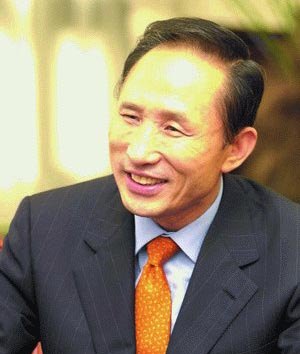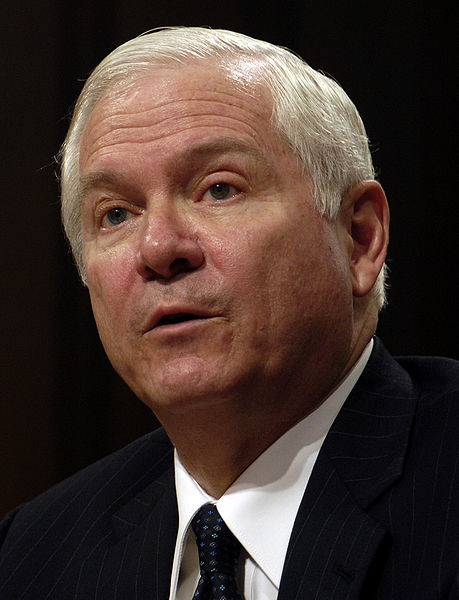US & Korea Discuss North Korean Regime Collapse Planning
It appears USFK is taking what RAND Corp. scholar Dr. Bruce Bennett had to say seriously considering the current announcement that USFK wants to develop joint contingency plans with South Korea in case of a North Korean regime collapse:
The United States has proposed setting up a detailed action plan in case of the collapse of the North Korean regime under Kim Jong-il, a move Seoul once rejected out of fear that it would provoke Pyongyang.
Yonhap News reported that the proposal came at a recent meeting between the heads of the Joint Chiefs of Staff of South Korea and the United States, known as the Military Committee Meeting (MCM), quoting anonymous sources.
The two allies tried to come up with a similar plan several years ago, but only ended up agreeing on a conceptual plan, known as Contingency Plan 5029, as Seoul expressed concern that U.S. involvement in such an event could infringe upon its sovereignty.
“The U.S. side proposed the countries develop CONPLAN 5029 into an operational plan at the MCM,” the source was quoted as saying. The annual meeting of military chiefs was held in Washington on Oct. 16.
The U.S. proposal was then reported to the countries’ top defense officials, South Korean Defense Minister Lee Sang-hee and U.S. Defense Secretary Robert Gates, during their annual ministerial talks, known as the Security Consultative Meeting, in Washington the following day, according to the source. [Korea Times via Robert Koehler]
CONPLAN 5029 last came up back in 2006 and the then South Korean Roh Moo-hyun government did not want to do any real planning for fear of angering North Korea. The South Korean reluctance to plan for the internal collapse of North Korea, something that is more likely to happen then a second Korean War, should be looked at as ideology compromising the national security of the nation. A collapse of North Korea with no contingency plan between South Korea and the US would make the occupation planning before Operation Iraqi Freedom look like the second coming of the Marshall Plan. So both sides compromised and came up with a plan that really didn’t plan for much of anything other then securing weapons of mass destruction and the handling of refugees if the regime collapsed.

Who will provide basic services for the people of North Korea?
Stopping nuclear weapons dissemination and the exodus of refugees is extremely important, but as the U.S. military’s experience in Iraq has taught us, providing for security, the rule of law, and government services immediately after a conflict is also essential. Who will stop the inevitable looting that will begin after a regime collapse? Who will prevent North Koreans from taking revenge against regime security forces and others who had oppressed them? The Koreans rely on government food rations. If the regime collapses, who will provide food for the country’s 23 million citizens? Several infectious diseases—scarlet fever, measles, typhoid, paratyphoid, and typhus—are reportedly spreading inside North Korea now. Who will enforce quarantines and treat the sick? Who will establish law and order in a country filled with small arms and explosives? Who will stand up a government that the citizens of North Korea will accept after a collapse?
These are just a few of the questions that need answers with any operational plan being constructed to deal with a North Korean regime collapse.

South Korean President Lee Myung-bak
Now with a new South Korean president in place US Defense Secretary Gates is pushing again for better contingency planning if the North Korean regime should collapse:
Gates reportedly said that the U.S. is ready to supply fighting power necessary for South Korea to implement such an operational plan.
It was the first time since the Lee Myung-bak administration took office that the top U.S. military leader has stressed the need to make the plan practicable and pledged support.
Seoul apparently agrees but feels it should tread carefully for fear of upsetting North Korean and some parts of South Korean society. [Chosun Ilbo]
Considering North Korea just threatened to turn Seoul into “debris”, I don’t think you can anger them anymore then that. Also I don’t think that creating an Operational Plan in case of a North Korean collapse will cause massive street protests like the mad cow issue, but you can be sure the usual suspects will be out protesting, which is nothing new. So I think this planning will get some traction in the coming months.

US Defense Secretary Robert Gates
However, something that concerns me is Secretary Gates statement saying the US will, “supply fighting power” for South Korea to implement such a plan. Does that mean Secretary Gates advocates for US troops moving into North Korea if the regime collapses?
I have long maintained that no US troops should move into North Korea if the regime collapsed, which has put my views at odds with people I respect such as John Bolton and Nicholas Eberstadt.
I have said this repeatedly, but I will say it yet again, if US forces moved into North Korea if the regime collapsed, that would be an excuse for the Chinese to move in. The Chinese want to keep the North Korean buffer state along their border and will not willingly go along and give it up if they can help it. That is why I have always believed that if the ROK Army was prepared to execute an immediate occupation of North Korea if the regime collapsed, China would then have a harder time legitimizing any invasion of North Korea with their own forces if the ROK Army is already moving in to stabilize the situation.

Chinese People’s Liberation Army stands ready to intervene in North Korea
US forces moving into North Korea would only legitimize any Chinese action into North Korea plus cause a host of other issues such as causing the North Korean population to question the legitimacy of the South Korean government. North Koreans have been brought up since the day they were born on anti-US propaganda saying the South Koreans are just puppets of the Americans and any US occupation force into North Korea would only confirm this in the minds of North Koreans. It will be imperative after any regime collapse to establish the legitimacy of the South Korean government with the people of North Korea and any US or Chinese intervention force will greatly compromise this.
Any occupation of North Korea will not be easy even with detailed planning. The 60 years of indoctrination has brainwashed the population against the outside world and left the country with a shattered economy. However, detailed planning in the event of a North Korean regime collapse will at least contain an extremely dangerous situation from turning into an international crisis and a possible stand off between the United States and China.

No comments:
Post a Comment